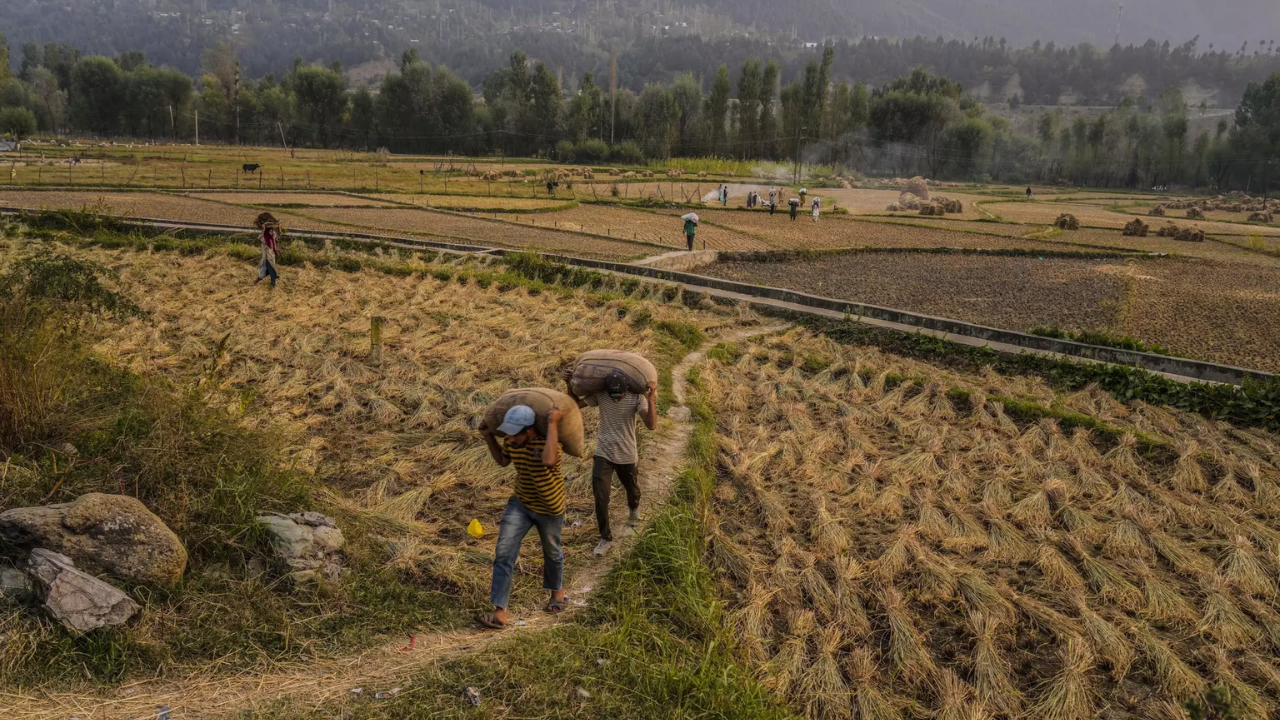NEW DELHI: India on Wednesday warned global fertiliser suppliers against “cartelisation” and “situation-based pricing” to make maximum profit during any crisis, saying a steep price rise in recent times is unacceptable and consuming nations will look for alternatives if this is not checked.
Union fertiliser minister Mansukh Mandaviyaflagged how the international prices of phosphorus fertiliser – di-ammonium phosphate (DAP) – has increased by 20% in just 15 days; from $440 per tonne to $540.He said India will not accept such practice and look at the alternative, if this is not stopped.
Addressing the annual convention of the Fertiliser Association of India (FAI), Mandaviya said, “We have been a trusted partner and you (global fertiliser suppliers) have got good business from us. India being one of the major importers of fertiliser, we have contributed to the growth of your companies… You may earn more in the short term, but in the long run you will lose.”
India meets almost 50% of its DAP demand from imports, mainly from West Asia and Jordan while it’s 100% dependent on imports to meet the requirement of muriate of potash (MoP).
Urging global firms to come out with India-specific pricing while factoring in “reasonable profit” margin, Mandaviya said they won’t get such a big market.
“If global companies engage in price cartelisation, we have (also) found out the solution. Why have we gone to nano urea and nano DAP? We have two lakh Kisan Samriddhi Kendras through which we are educating farmers about alternate fertilisers,” he said.
“During the past 2-3 years, the government has absorbed the impact of high global commodity prices and ensured the availability of fertilisers at stable MRP. This has resulted in stable fertiliser consumption and a record agricultural output during these years, as compared to de-growth in consumption globally,” he added.
Union fertiliser minister Mansukh Mandaviyaflagged how the international prices of phosphorus fertiliser – di-ammonium phosphate (DAP) – has increased by 20% in just 15 days; from $440 per tonne to $540.He said India will not accept such practice and look at the alternative, if this is not stopped.
Addressing the annual convention of the Fertiliser Association of India (FAI), Mandaviya said, “We have been a trusted partner and you (global fertiliser suppliers) have got good business from us. India being one of the major importers of fertiliser, we have contributed to the growth of your companies… You may earn more in the short term, but in the long run you will lose.”
India meets almost 50% of its DAP demand from imports, mainly from West Asia and Jordan while it’s 100% dependent on imports to meet the requirement of muriate of potash (MoP).
Urging global firms to come out with India-specific pricing while factoring in “reasonable profit” margin, Mandaviya said they won’t get such a big market.
“If global companies engage in price cartelisation, we have (also) found out the solution. Why have we gone to nano urea and nano DAP? We have two lakh Kisan Samriddhi Kendras through which we are educating farmers about alternate fertilisers,” he said.
“During the past 2-3 years, the government has absorbed the impact of high global commodity prices and ensured the availability of fertilisers at stable MRP. This has resulted in stable fertiliser consumption and a record agricultural output during these years, as compared to de-growth in consumption globally,” he added.






